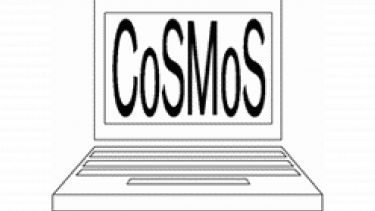CoSMoS
A qualitative study and randomised pilot trial of computerised cognitive behavioural therapy (CCBT) for the treatment of depression in people with multiple sclerosis.
Principal investigator: Dr Cindy Cooper
Study manager: Daniel Hind
Funding: MS Society Symptom Relief Research Initiative
Collaborators:
- Basil Sharrack, Claire Isaac (şů«Ӱҵ Teaching Hospitals)
- Anita Rose (Walton Centre in Liverpool)
- Jon Nicholl, Glenys Parry, Alicia O’Cathain, Eva Kaltenthaler, Jenny Freeman (ScHARR)
şů«Ӱҵ URMS Number: 112276
ClinicalTrials.gov Identifier: NCT00678496
ISRCTN identifier: ISRCTN81846800
Participating sites
- Walton Centre in Liverpool
- şů«Ӱҵ Teaching Hospitals
Challenges
People with chronic physical conditions are at elevated risk of depression. Due to a shortage of Cognitive Behavioural Therapy (CBT) practitioners, computerised CBT (CCBT) is recommended for people with mild to moderate depression. The project had three objectives.
- To explore the acceptability and appropriateness of the recommended commercially available package, Beating the Blues, and a second freely available product, MoodGym, for people with MS;
- For the software companies to develop the products in accordance with the findings; and,
- To test the feasibility of an RCT protocol to compare usual care with use of CBT software in depression for people with MS, looking particularly at those aspects which often cause trials to fail.
Research
Our study psychologists had confirmed that the software packages used CBT principles/techniques. We asked 17 people with MS who had symptoms of depression to use CBT software for five to eight sessions.
We then interviewed them about their views of the experience and their perceptions of the effects.
Participants with a diagnosis of MS and clinical levels of depression were recruited through out-patient clinics and postal screening questionnaires at two UK centres and randomised to CCBT or usual care.
Clinical outcomes included the Beck Depression Inventory (BDI-II) and Multiple Sclerosis Impact Scale (MSIS-29) at baseline, 8 and 21 weeks.
Feasibility outcomes included: recruitment rate; reasons for refusal, withdrawal and dropout; feasibility and acceptability of the proposed outcome measures; sample size estimation and variation in and preferences for service delivery.
Results
Nearly all the qualitative study participants recruited identified something about each CBT software package which they found useful but, at the same time, found each inappropriate for people with MS.
Those using MoodGym found it wordy and felt they were being unfairly encouraged to do activities of which they were often no longer physically capable in order to cure their depression; they also felt it was aimed at teenagers rather than adults and felt the style of delivery got in the way of the content.
People using Beating the Blues could see the value of the CBT techniques which it demonstrated, but had problems applying them to their experiences of living with MS, which included (variably) irritability, unpredictability, fear and different types of loss.
Users of both software packages had problems answering the depression symptom inventories honestly or consistently because they believed that they should not be scoring symptoms which they felt were caused by their MS rather than depression.
We concluded that CBT techniques have the potential to support people coping with MS. However, CBT software packages need to be more explicit about the applicability of CBT techniques to people with chronic physical conditions such as MS, given the varied uncertainties, threats and losses imposed on them by their illness.
Physically ill users of CBT software need guidance on how to answer depression symptom inventories.
Twenty-four participants were recruited. The recruitment rate, calculated as the proportion of those invited to fill in a screening questionnaire who were consented into the trial, was 4.1%. Recruitment through out-patient clinics was somewhat slower than through screening questionnaire mail-out but the overall recruitment yield was similar.
The MSIS-29 was the patient-reported outcome measure which participants felt best reflected their concerns. The estimated sample size for a full trial was between 180 and 390 participants.
NHS partners were not delivering CCBT in community facilities and participants preferred to access CCBT at home, with no one expressing a preference for use of CCBT in an alternative location.
Impact
The manufacturers of Beating the Blues (Ultrasis) involved a study team member with MS to explore the potential for further development of the software to increase acceptability of the package for people with MS. However, as far as we were aware the changes made were very minimal and not specifically relevant to people with MS. The study team decided against undertaking a definitive trial of the use of CBT software for depression in people with MS.
Publications
Hind D, O’Cathain A, Cooper CL, Parry GD, Isaac CL, Rose A, et al. . Psychol Health. 2010;25(6):699–712.
Cooper C, Hind D, Parry G, Isaac C, Dimairo M, O’Cathain A, et al. . Trials. 2011;12(1):259+.
Hind D, Kaklamanou D, Beever D, Webster R, Lee E, Barkham M, et al. . BMC Psychiatry. 2016;16(1):278.
Hind D, Cotter J, Thake A, Bradburn M, Cooper C, Isaac C, et al. BMC Psychiatry. 2014;14:5.

